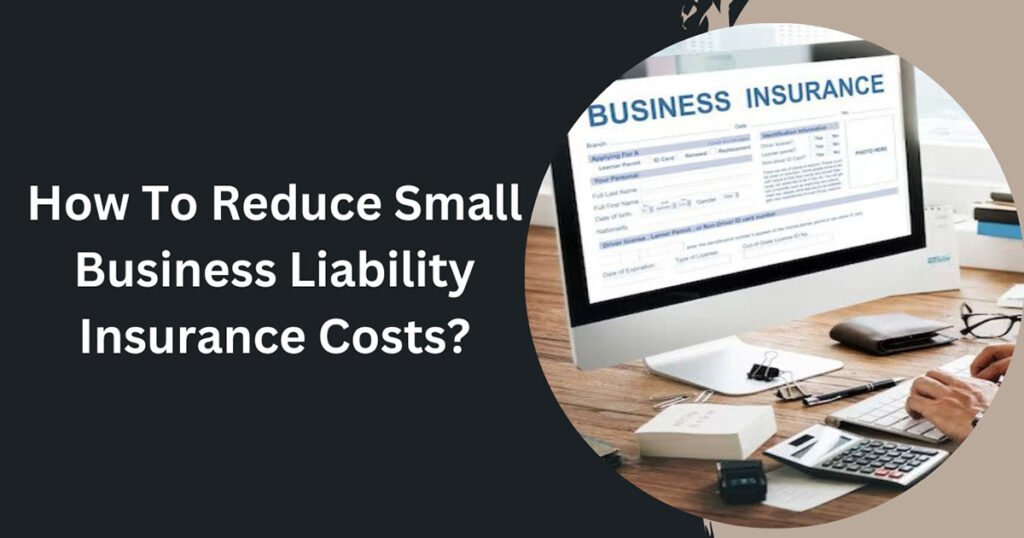Starting and running a small business can be a rewarding endeavor, but it also comes with its fair share of risks. To protect your business from potential liabilities, you need liability insurance. However, insurance costs can quickly add up, especially for small businesses with limited resources. The good news is that there are several strategies you can employ to reduce your small business liability insurance costs without compromising your coverage. In this article, we will explore these strategies in simple terms to help you make informed decisions for your business.
1. Understand Your Business Risks
Before you can effectively reduce your small business liability insurance costs, it’s essential to understand the specific risks associated with your business. Not all businesses face the same liabilities, and insurance policies are tailored to address different risks. Take some time to identify the unique risks your business might encounter, such as slip and fall accidents, product liability, professional errors, or data breaches.
Understanding your business’s risks allows you to purchase insurance that is directly relevant to your needs, avoiding unnecessary expenses on coverage you don’t require.
2. Shop Around For Quotes
Insurance premiums can vary significantly from one insurer to another. Don’t settle for the first quote you receive. Instead, shop around and obtain quotes from multiple insurance providers. Compare the coverage, deductibles, and premium costs. You may discover that you can get the same or better coverage for a lower price by exploring different options.
3. Bundle Your Policies

Many insurance companies offer discounts when you bundle multiple insurance policies together. For example, you can often save money by purchasing a business owner’s policy (BOP) that combines general liability and property insurance. By bundling policies, you not only save money but also simplify the insurance process, as you’ll have one point of contact for multiple coverages.
4. Increase Your Deductibles
The deductible is the amount you agree to pay out of pocket before your insurance coverage kicks in. Generally, the higher your deductible, the lower your premium. While a higher deductible means you’ll be responsible for a larger share of the costs in the event of a claim, it can significantly reduce your insurance costs. Carefully consider your financial situation and your ability to cover the deductible before opting for this cost-saving strategy.
5. Maintain A Safe Business Environment
Insurance companies often take into account the safety measures you have in place when determining your premium. The safer your business environment, the less risk you pose to the insurer, which can lead to lower premiums. Here are some steps you can take to enhance safety:
- Implement Safety Protocols: Develop and enforce safety procedures for your employees and customers.
- Regular Maintenance: Keep your business premises and equipment in good condition to reduce the risk of accidents.
- Employee Training: Invest in employee training to minimize accidents and errors.
- Security Measures: Protect your business from theft and vandalism with security measures like surveillance cameras and alarm systems.
6. Hire Competent Employees

The quality of your employees can impact your liability insurance costs. Employing experienced, skilled, and well-trained individuals can reduce the likelihood of accidents, errors, or negligence, which can lead to insurance claims. Additionally, consider conducting background checks and thorough interviews to ensure that you hire reliable staff.
7. Avoid High-Risk Business Activities
Some business activities are considered riskier than others, and this risk is factored into your insurance premium. If your business engages in high-risk activities that are not essential to your operations, consider discontinuing them to reduce your liability insurance costs. For example, if you operate a restaurant and offer extreme sports activities on the side, discontinuing the high-risk activity may lead to lower premiums.
8. Implement Risk Management Strategies
Insurance companies look favorably upon businesses that have robust risk management strategies in place. These strategies demonstrate your commitment to preventing accidents and minimizing potential liabilities. Here are a few ways to implement risk management:
- Risk Assessments: Regularly evaluate your business operations to identify and address potential risks.
- Training: Provide ongoing training to employees to enhance their understanding of safety and risk reduction.
- Record Keeping: Maintain thorough records of safety procedures and incident reports.
- Incident Response Plan: Develop a clear plan for handling incidents when they occur to mitigate the damage.
9. Consider Pay-As-You-Go Insurance

For some small businesses, particularly those with fluctuating income and employee levels, pay-as-you-go insurance might be a cost-effective solution. Pay-as-you-go policies allow you to pay insurance premiums based on your actual business activities. If you experience a slow period, your premiums will decrease accordingly. This can be especially beneficial for businesses with seasonal variations in income.
10. Seek Professional Advice
Navigating the world of insurance can be complex, and seeking professional advice can be highly beneficial. Insurance brokers or agents can help you understand the best policies for your business and identify potential cost-saving opportunities. They have the expertise to match your business needs with the right insurance coverage, ensuring you are adequately protected without overspending.
11. Maintain Good Communication With Your Insurer
Open and honest communication with your insurance provider is crucial. If your business undergoes changes, such as a shift in operations, location, or employee structure, inform your insurer promptly. Failing to do so can lead to coverage gaps or increased premiums.
12. Consider Self-Insuring For Small Claims
For some minor incidents, it may be more cost-effective to handle the claims in-house rather than involving your insurance company. Self-insuring for small claims can save you money in the long run by avoiding the associated administrative costs and potential premium increases.
Conclusion
Small business liability insurance is a critical safeguard to protect your business from unforeseen risks, but it doesn’t have to break the bank. By understanding your business’s unique risks, shopping around for quotes, implementing safety measures, and making informed choices, you can reduce your liability insurance costs while still maintaining adequate coverage. Don’t hesitate to seek professional guidance to ensure that you make the best choices for your business’s specific needs. Ultimately, by effectively managing your insurance costs, you can allocate your resources more efficiently and continue to grow your business with confidence.
Also Read : How Self-Employed Individuals Can Find The Right Health Insurance
FAQs
1. What is liability insurance for small businesses?
Liability insurance for small businesses is a type of coverage that protects your business from financial losses in case of lawsuits or claims filed against your business for bodily injury, property damage, or other liabilities.
2. Why is reducing liability insurance costs important for small businesses?
Reducing liability insurance costs is essential for small businesses to manage their expenses effectively and maintain profitability.
3. What factors affect the cost of liability insurance for small businesses?
Several factors can impact the cost of liability insurance, including the type of business, location, coverage limits, previous claims history, and the industry’s risk profile.
4. How can I lower my small business liability insurance premiums?
You can lower your premiums by implementing risk management strategies, shopping around for competitive rates, bundling policies, increasing deductibles, and improving safety measures.
5. What are some risk management strategies to reduce liability insurance costs?
Implementing safety protocols, employee training, and maintaining thorough records of business operations can help mitigate risks and potentially lower insurance costs.
6. Is it advisable to bundle different insurance policies for cost savings?
Yes, bundling multiple insurance policies, such as liability, property, and business interruption insurance, with the same insurer often leads to cost savings through discounts.
Source Image : Freepik.com

